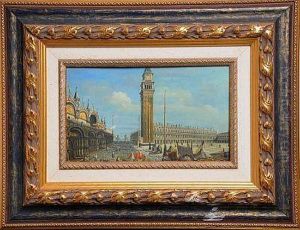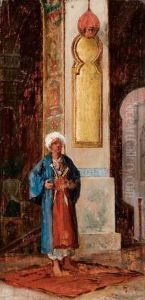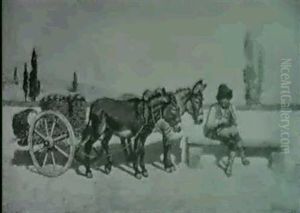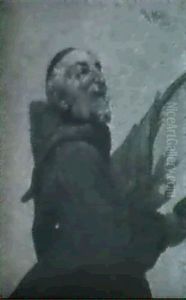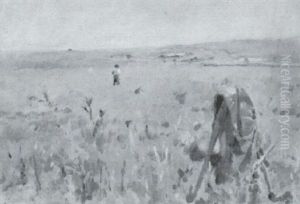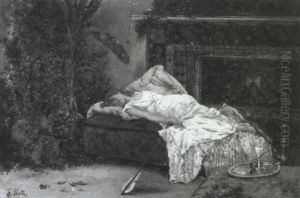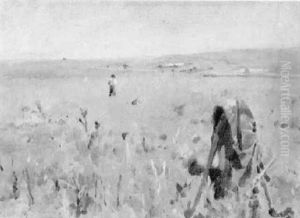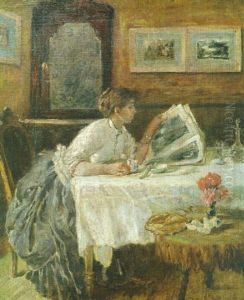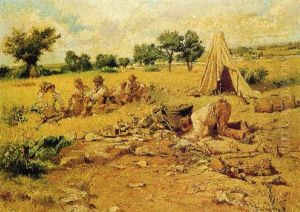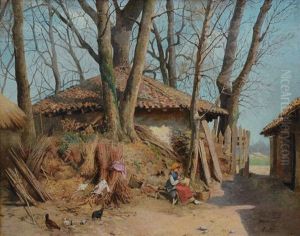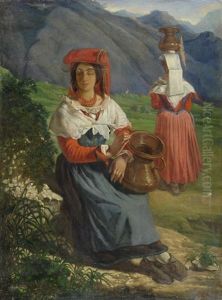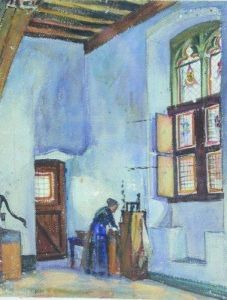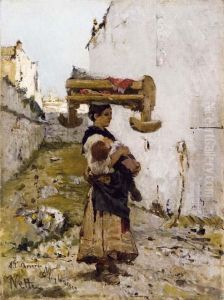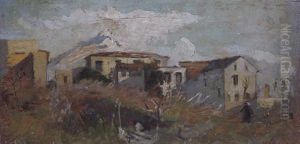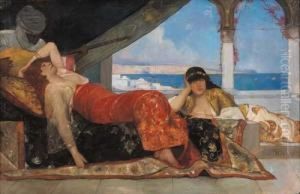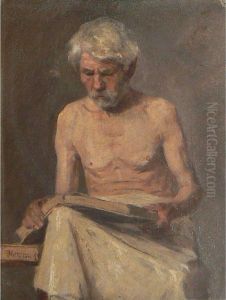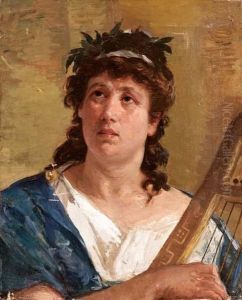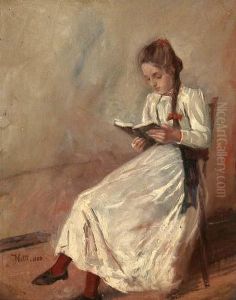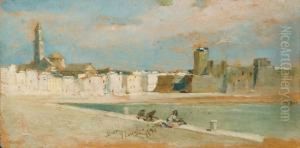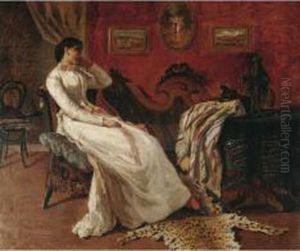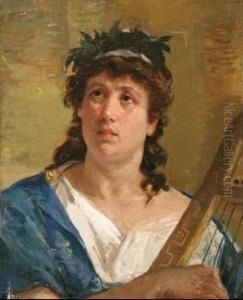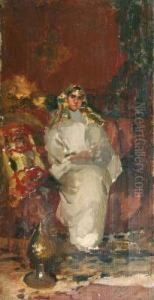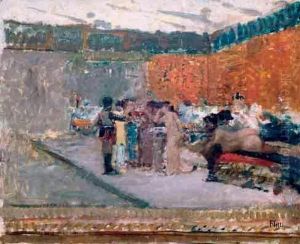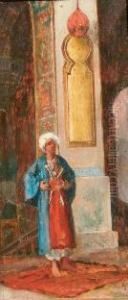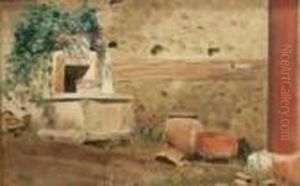Francesco Netti Paintings
Francesco Netti was an Italian painter born on November 18, 1832, in Barletta, in the region of Apulia. He is particularly known for his historical and genre paintings, often characterized by a keen attention to detail and a fascination with Orientalist themes. His work reflected the 19th-century European interest in exotic cultures and often included scenes of the Middle East and North Africa.
Netti initially studied at the Academy of Fine Arts in Naples, where he was under the tutelage of significant artists of the period such as Gabriele Smargiassi and Costanzo Angelini. His early works were influenced by the prevailing Neapolitan painting tradition, but he soon developed his own distinctive style, which was marked by a dramatic use of light and shadow, a rich color palette, and meticulous composition.
In the 1860s, Netti began to gain recognition for his work. One of his most famous paintings, 'Il Canto dello Stornello' (1867), which depicts a young woman singing, is a testament to his ability to capture the essence of Italian life and culture, as well as his skill in portrait painting. Netti's interest in Orientalism is evident in works such as 'Preghiera Mussulmana' (Muslim Prayer), where he portrays the subjects with a sense of romantic fascination and ethnographic detail.
Throughout his career, Francesco Netti also engaged in historical paintings. He was inspired by events from Italian and European history, and his works in this genre are noted for their dramatic intensity and the emotional depth of the characters portrayed. Netti's historical paintings were part of a broader movement in Italian art that sought to contribute to the construction of a national identity during and after the unification of Italy.
Netti's contributions to Italian art were recognized during his lifetime, and he was awarded various honors. His works were exhibited in numerous national and international exhibitions, including those in Paris and Vienna, where they were well received by critics and the public alike.
Francesco Netti's health began to decline in the 1880s, and he eventually passed away on June 3, 1894, in Naples. He left behind a rich legacy as one of the prominent painters of the Italian school, with works that continue to be appreciated for their historical value and artistic merit. Netti's paintings can be found in various museums and private collections, where they continue to be studied and admired by art enthusiasts and scholars alike.
